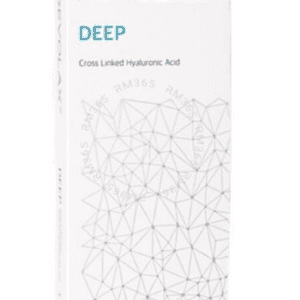In recent years, the healthcare industry has been undergoing a major transformation, with a focus on delivering patient-centered care that is more accessible, affordable, and convenient. One of the most innovative concepts that has emerged in this area is the NHS Hospital at Home initiative, which allows patients to receive medical treatment and care from the comfort of their own homes.
This approach involves the use of remote monitoring technologies, virtual consultations, and at-home testing to deliver medical care to patients who would otherwise have to be admitted to a hospital. As med-tech providers, we’re always looking for ways to improve patient care and reduce patient stress. One of the most exciting developments in this area is the rise of self-diagnosis and self-testing.
By delivering medical care to patients in their own homes, we can reduce the stress and discomfort associated with hospital stays. Patients can remain in a familiar and comfortable environment, surrounded by their loved ones, while receiving the treatment they need. This is a game-changer, empowering patients to take greater control over their own health and well-being.
Improving patient outcomes with at-home testing
With access to medical testing kits and diagnostic tools, patients can better monitor their health and identify potential health issues early on, without needing to visit a healthcare provider in person. Take Strep A for example. It’s a bacterial infection that can cause a range of symptoms, including sore throat, fever, and swollen glands.
Traditionally, patients would need to visit a healthcare provider in person to be tested for Strep A, which can be inconvenient, expensive, and time-consuming. However, with the advent of at-home tests, patients can test themselves for Strep A from the comfort of their own homes. The tests are easy to use with minimal training or instruction, and can be performed at a time and location that suits the patient.
Another key benefit of self-diagnosis at home is that it can reduce the burden on healthcare providers. By testing themselves for Strep A at the first sign of symptoms, patients can receive treatment sooner, potentially reducing the severity of the infection and the need for more invasive medical interventions. This can lead to better patient outcomes, lower healthcare costs, and higher patient satisfaction.
Similarly, patients with diabetes can use at-home blood glucose testing kits to monitor their blood sugar levels and adjust their medication as needed. And patients with high cholesterol can use at-home cholesterol testing kits to monitor their cholesterol levels and make informed decisions about their diet and exercise habits.
The future of medical care
The DHSC believes up to 20% of emergency hospital admissions are avoidable with the right care in place. Under the Hospital at Home model, healthcare providers can intervene before a condition becomes more serious, potentially reducing the need for hospital stays or expensive medical treatments. Healthcare providers can also focus their resources on patients who require more intensive care or treatment.
The Hospital at Home concept also offers significant cost savings compared to traditional hospital stays. By reducing the need for hospital admissions, we can lower healthcare costs and improve overall efficiency in the healthcare system. The home hospital concept is just one part of a broader shift towards patient empowerment and self-care in healthcare.
With the advent of new technologies and digital platforms, as well as self-testing and self-diagnosis, patients are increasingly taking a more active role in managing their own health and well-being. Self-diagnosis at home is also a valuable tool to bridge the gap for patients who may have limited access to medical care, such as people who live in rural or remote areas.
As the healthcare industry continues to evolve, we can expect to see even more innovations in at-home testing and diagnosis, which will help to transform the way that healthcare is delivered to patients. By promoting self-care and patient empowerment, we can help patients take greater control over their own health, improve their quality of life, and reduce the frequency of doctor visits or hospital stays. It’s an exciting new approach to patient care!







